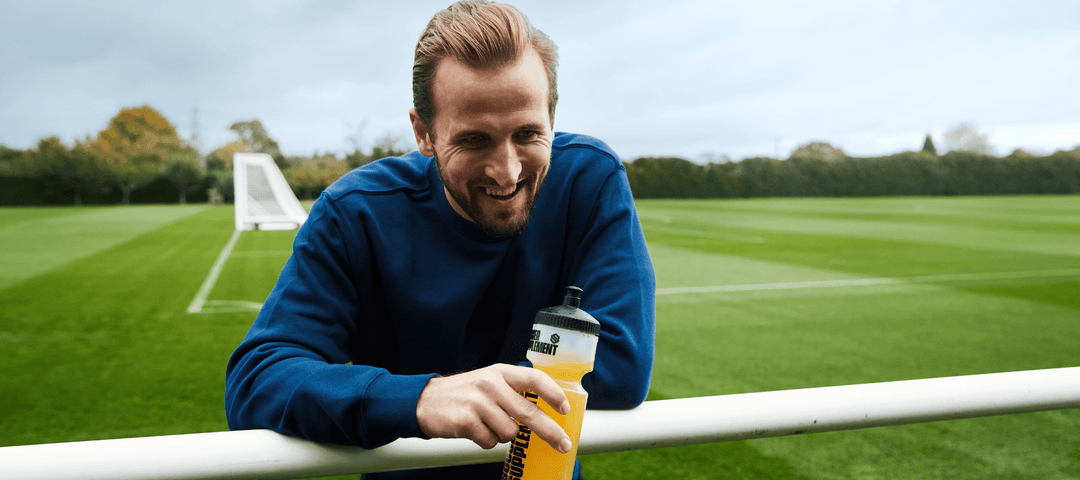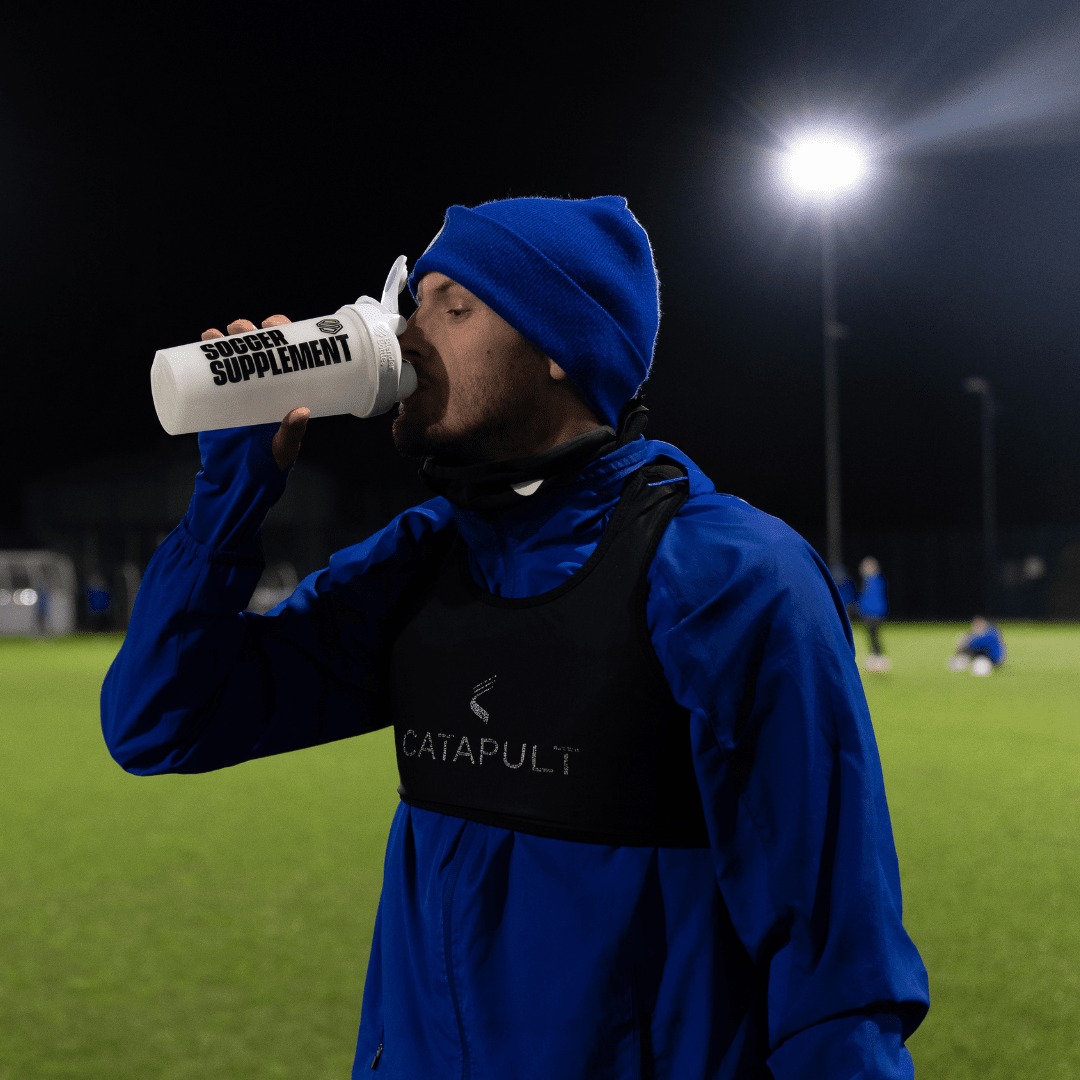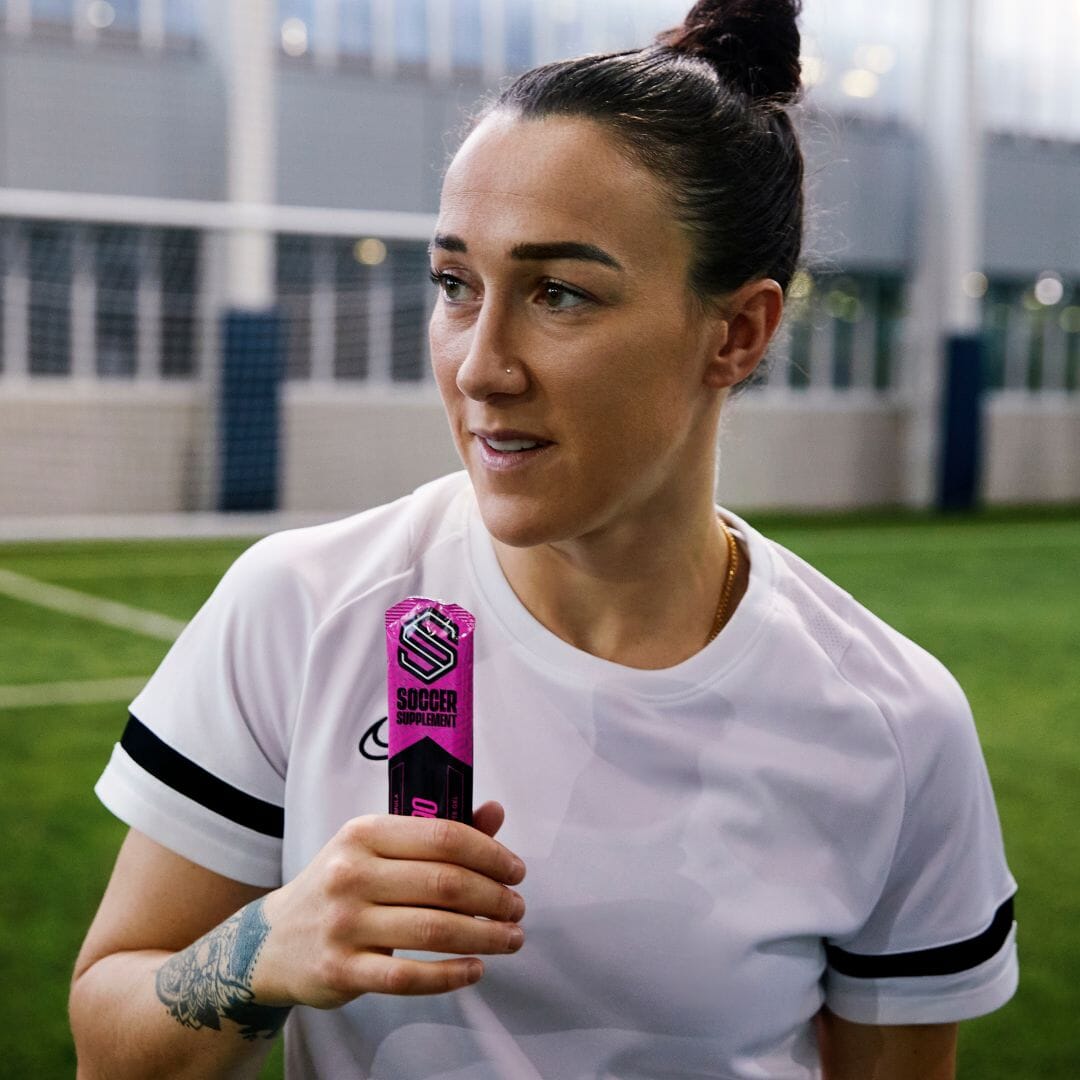THE IMPORTANCE OF ELECTROLYTES FOR FOOTBALLERS
Pro footballers are known for some strange pre-match habits – whether that’s being the last player to walk onto the pitch, cutting holes in the back of their socks, or kissing their goalkeeper’s bald head.
Yet, one thing that every professional footballer does before, during and after football is hydrate properly. This is one habit that every Sunday league player should copy.
Good hydration is crucial. The average footballer is likely to lose 1.1 litres of water through sweat during a game; often more. Without replenishing yourself with enough fluid, you risk varying degrees of dehydration – when your body does not have enough water to do its job.
Symptoms of dehydration include headaches and nausea, heatstroke and worse. The highest concern for footballers is that dehydration can cause fatigue and severe cramps, while impairing your muscles and their ability to contract to their peak. This can all result in a negative impact on your speed, strength and explosiveness.
In this introduction, we have hopefully drilled home the message that taking on enough water is vital. However, water alone is often not enough for optimum hydration when intense activity is involved.
This is when our attention turns to electrolytes.
WHAT ARE ELECTROLYTES?
Minerals that carry an electrical charge and help your body to work at peak.
Electrolytes are something that most of us will have heard of. They are minerals that carry an electrical charge when dissolved in water. Their job is to allow fluid to pass through cell membranes, which explains their crucial role in hydrating the body, as well as nerve and muscle contraction, and other vital metabolic functions.
Electrolytes include sodium, potassium, calcium, magnesium and chloride, which we take in through food and drink – think things like bananas, avocados and pickles.
Of course, we can also lose electrolytes through sweat and urine. Therefore, while drinking water during exercise is imperative, having an adequate intake of electrolytes at the same time is important to avoid an electrolyte imbalance.
DAILY HYDRATION
Maintaining electrolyte balance and hydration on a daily basis.
While many of us may not be at immediate risk of severe dehydration, it is sensible to ensure we have a good level of basic hydration.
This means drinking water every day. How much? The quick answer is to aim for around two litres, which can be spread out over eight glasses. Drink one when you wake up, one before you go to sleep, and one with each meal, and you will be well on your way.
If you find yourself in a desperate thirst at the end of the day and having to gasp down a pint of water, you are already showing signs of dehydration. Learn from this for tomorrow!
As for electrolytes, providing you are eating a balanced diet, you may be in adequate supply for your daily activity (i.e., working in an office, pottering around the house, and so on). However, if you have an active job or are doing any exercise – whether that’s cardio, resistance training or something on the pitch – you are likely to need added electrolytes to enhance the absorption of water.
In this case, forget pickles. Instead, use a trusted electrolyte supplement such as our effervescent electrolyte Hydrate90® Tablets.
With a formula of electrolytes and three B vitamins, these tasty tabs are specially designed for footballers wanting a hydration boost, but without carbohydrate or sugar. This makes them ideal for daily hydration, as well as playing football when you are already taking other energy supplements.
MATCHDAY HYDRATION
Maintaining electrolyte balance and hydration for match day performance.
Assuming your daily hydration is on point, by the time matchday rolls around you should be able to hydrate effectively to see you through 90 minutes.
In anticipation of the fluid that you will lose during the game, you should aim to drink at least 500ml of water in the morning before your match, and around 250ml to 500ml in the hour leading up to kick-off. Don’t gulp it all down at once, unless you fancy that sloshy feeling as the ref blows his whistle.
For this pre-match drink, it can be wise to include a supplement that combines electrolytes with carbohydrates to ensure your muscles are brimming with energy. Be sure to read more on the importance of carbs for footballers.
Our Fuel90® offers a blend of carbohydrates and electrolytes in an easy to take gel sachet. With 28g of dual carbohydrate energy and an elite dual carbohydrate 3:1 formula, Fuel90® provides players with an effective, lightning-fast release of energy and electrolytes to help boost performance levels.
Our Hydrate90® energy and electrolyte drink supplement is tailored to footballers wanting this blend of hydration and fuel, and is used to great effect by top-tier teams around the world. It features a dual carbohydrate formula that is quickly absorbed and ready to use by your body, along with 380mg of electrolytes to help prevent muscle cramps.
As the match is underway, don’t forget about drinking. It’s recommended that you take 500ml to 1 litre of water for every hour of activity. This equates to around 1 to 1.5 litres over a 90-minute match. Continue to add electrolytes as required, especially in warmer weather.
After the match, continue to drink water to replace the liquid you have lost – at least 500ml to 1 litre in the hour or so after the final whistle.
SUMMARY
-
Every day: Drink around 2 litres of water, adding electrolytes when required
-
Morning of match: Drink 500ml of water
-
One hour before match: Drink 250ml to 500ml of water, adding electrolytes and carbs
-
During match: Drink around 1 to 1.5 litres of water over the 90 minutes, with electrolytes if required
-
Post-match: Drink 500ml to 1 litre of water
By now, you should be convinced that hydration must be taken seriously if you want to perform on the pitch. In other words, no amount of head kissing can make up for poor hydration!
Keep your water bottle and an electrolyte supplement handy whenever you are near the field, and you will soon see the benefits to your game.
Click here to shop our range of Hydration products.










